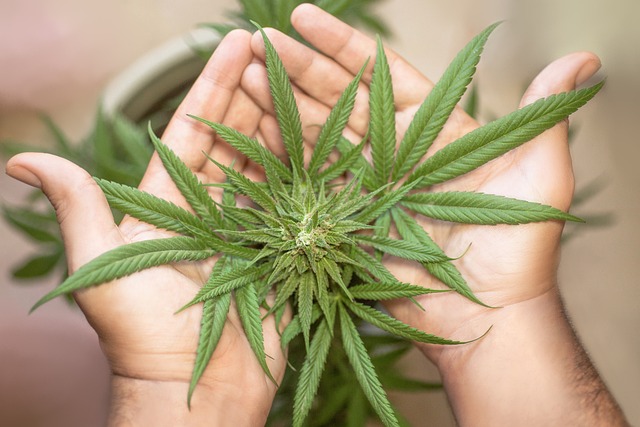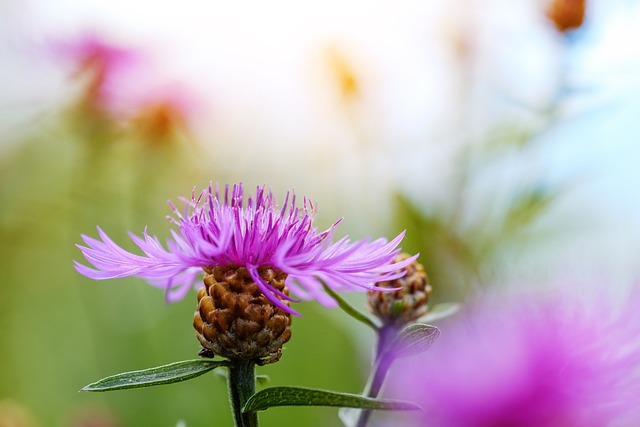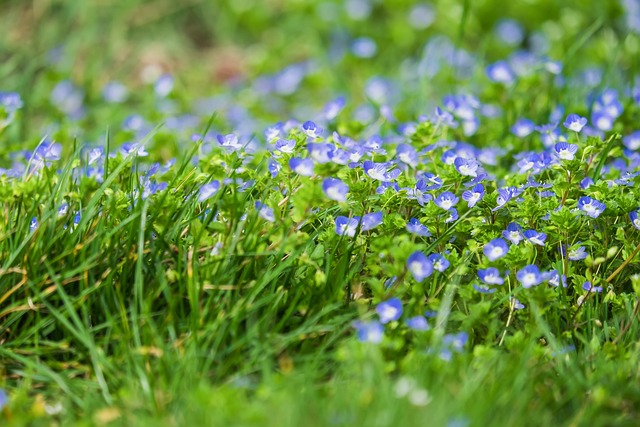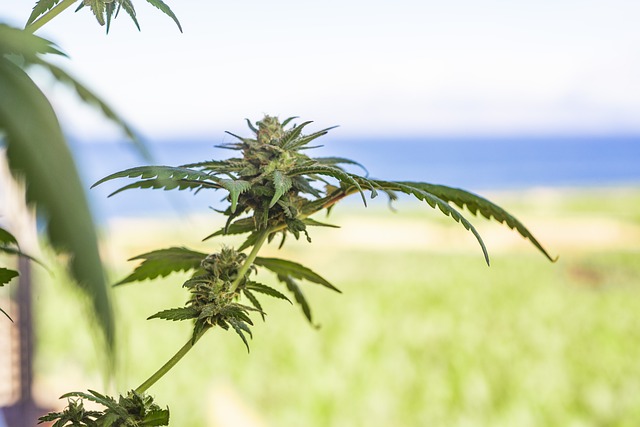2018 Farm Bill provisions and subsequent state regulations in Texas now allow for the cultivation, possession, and sale of hemp derivatives with less than 0.3% THC, including THCA IndaCloud CBD flower flowers. This has opened a legal pathway for consumers to access THCA, a non-psychoactive cannabinoid found in cannabis that offers potential therapeutic benefits like analgesic and anti-inflammatory properties without the “high.” Texas’s conservative approach to cannabis laws provides an exception for THCA, which exists in a legal gray area due to its precursor status to psychoactive THC. As such, consumers can legally possess and consume THCA flowers, with the understanding that this interpretation could change with new legislation or court decisions. For those interested in cultivating THCA-rich plants, adherence to Texas’s regulatory framework is essential, involving selecting the right hemp strains, maintaining optimal growing conditions, and following proper drying and curing processes to ensure compliance with both state and federal guidelines. Always consult legal counsel for the most current information on cannabis-related laws in Texas. As of the latest update, THCA remains a notable legal entity in Texas, reflecting the evolving landscape of hemp-derived products and their therapeutic potential.
Discover the emerging world of THCA flower, a non-psychoactive compound found in hemp that’s gaining attention for its potential wellness benefits. As we delve into understanding what THCA flower is and its legal status in Texas, this article serves as a comprehensive guide for enthusiasts and newcomers alike. We’ll explore how to source quality THCA legally within the Lone Star State, offer insights on cultivating your own, and discuss the benefits and effects of incorporating it into your wellness routine. From decarboxylation techniques that activate its properties to dosage and safety tips, this article covers it all, ensuring you have a well-rounded understanding of THCA flower’s role in the cannabinoid landscape. With Texas’s unique laws surrounding its possession, purchase, and use, navigating these guidelines is crucial for responsible engagement with this natural alternative. Join us as we unravel the science behind THCA and its potential health implications, providing you with the knowledge to make informed decisions about its inclusion in your life.
- Understanding THCA Flower: A Comprehensive Overview
- The Legal Status of THCA Flower in Texas
- Sourcing Quality THCA Flower Legally in Texas
- Cultivating Your Own THCA Flower in Texas: A Step-by-Step Guide
Understanding THCA Flower: A Comprehensive Overview

delta-9-tetrahydrocannabinolic acid (THCA) is a natural cannabinoid found in the cannabis plant, which, when heated or decarboxylated, converts into the more well-known psychoactive compound THC. As of my knowledge cutoff in 2023, THCA itself is non-psychoactive but possesses a range of potential therapeutic properties. In Texas, the legal status of THCA-rich hemp products has evolved with changing state and federal regulations. According to the 2018 Farm Bill and subsequent updates to Texas law, hemp-derived products containing less than 0.3% delta-9-THC are legal. This distinction is crucial for consumers and producers as it allows for the cultivation, possession, and sale of THCA flowers that meet these criteria within the state.
The popularity of THCA flowers in Texas stems from their versatile use. Unlike its psychoactive counterpart, THCA interacts with the body’s endocannabinoid system without inducing a “high.” Instead, it offers potential benefits such as anti-inflammatory and analgesic effects, which may appeal to individuals seeking relief from various conditions. The legal landscape in Texas facilitates access to these products, provided they are derived from hemp and contain negligible THC levels. Consumers interested in exploring the therapeutic properties of THCA flowers should ensure they are sourced from reputable suppliers adhering to state and federal regulations, ensuring both legal compliance and product quality.
The Legal Status of THCA Flower in Texas

In recent years, the conversation around cannabis and its derivatives has seen significant shifts across various states in the United States. Within this evolving legal landscape, Texas has maintained a conservative stance on the use of cannabis products. However, a notable exception to Texas’ broader cannabis laws is the presence of THCA (Tetrahydrocannabinolic Acid) flower, which exists in a legal gray area. As of the knowledge cutoff date, THCA, a non-psychoactive precursor to THC found in raw cannabis plants, is not explicitly outlawed by Texas state law when it comes to possession and consumption. This distinction arises from the fact that THCA must be heated or decarboxylated to transform into THC, the psychoactive compound. As a result, advocates and consumers have taken advantage of this loophole, interpreting state laws to allow for the sale and use of raw cannabis flowers rich in THCA, provided they are not sold for the purpose of being heated or ingested in a manner that would activate their psychoactive properties. Users interested in the effects of THCA have turned to these flowers as an alternative, leveraging the therapeutic potential attributed to this cannabinoid without violating state laws. It is important for consumers to stay informed, as the legal status of such products can change with new legislation or court rulings. Always consult legal advice before engaging with any cannabis-related substances to ensure compliance with current laws.
Sourcing Quality THCA Flower Legally in Texas

In Texas, where medical marijuana is legal under certain conditions, enthusiasts seeking high-quality THCA flower must navigate a regulated market to ensure they are sourcing their product legally and responsibly. The legality of THCA flower stems from a specific cannabinoid loophole in Texas law; THCA, the raw form of THC found in raw cannabis plants, is not explicitly classified as marijuana, allowing for its sale and possession under certain circumstances. To comply with state laws, consumers must source their THCA flower from licensed dispensaries or entities that possess the appropriate permits to cultivate and distribute low-THC cannabis. These legal avenues ensure that the product has been tested for safety and potency, providing peace of mind for users who incorporate THCA flower into their wellness routines. When sourcing THCA flower legally in Texas, it’s crucial to stay informed about the evolving regulations surrounding cannabis products to avoid any legal complications. Consumers are advised to purchase from reputable sources within the state to ensure compliance with all legal requirements. As of the knowledge cutoff date, Texas patients with a prescription for low-THC cannabis can legally access THCA flower through state-sanctioned dispensaries, marking a significant step forward in the state’s approach to medical marijuana.
Cultivating Your Own THCA Flower in Texas: A Step-by-Step Guide

Cultivating THCA flower, which contains the non-psychoactive compound tetrahydrocannabinolic acid (THCA), is a growing interest among gardeners and wellness enthusiasts in Texas, where its cultivation and use are legal under state law. To embark on this botanical journey, one must first understand the legal framework; ensure that state and local regulations allow for such cultivation within your jurisdiction. Once legally cleared, Texas’s varied climate conditions offer fertile ground for THCA flower cultivation. The process begins with selecting a suitable strain of hemp that is high in THCA content. Prepare your garden bed by amending the soil to be rich and well-draining, providing the right pH balance that hemp prefers. Spacing your plants appropriately, as they can grow quite large, will ensure optimal air circulation and sunlight exposure. Regular watering, especially during dry spells, is crucial for healthy growth. Monitor your plants for pests and diseases, employing organic methods to manage any issues that arise. As the flowers approach maturity, typically around 8-12 weeks from flower initiation, it’s time to harvest. Dry the flowers carefully to preserve the THCA content, using a dark, ventilated area away from direct sunlight. Proper drying and curing will enhance the potency and flavor of your THCA flower, making it ready for use in various wellness applications or for extraction purposes.
For those interested in cultivating THCA flowers in Texas, adherence to state laws is paramount. The Texas Department of State Health Services provides guidelines on licensed hemp handlers and the acceptable levels of THC in hemp products. Additionally, the Farm Bill legalizes hemp and derivatives with less than 0.3% THC on a dry weight basis, which aligns with state regulations. To successfully cultivate THCA flowers, one must also consider factors such as soil quality, climate conditions, and plant care practices to ensure a bountiful harvest rich in THCA. With careful planning and attention to detail, Texas residents can grow their own THCA flowers, contributing to the growing market for hemp-derived wellness products while enjoying the rewards of homegrown botanicals.
THCA flower, a non-psychoactive form of cannabis rich in therapeutic potential, has garnered significant attention within the wellness community. This article has delved into the intricacies of THCA, its legal status in Texas, and the avenues for acquiring it legally, whether through licensed dispensaries or by cultivating your own crop following Texas’s agricultural guidelines. For those interested in exploring the benefits of THCA within the confines of the law, understanding ‘THCA legal in Texas’ is paramount. As the Texas legislature continues to evolve regarding cannabis policies, staying informed remains crucial for enthusiasts and patients alike. With the guidance provided, individuals can confidently engage with THCA flower legally, responsibly, and knowledgeably.
